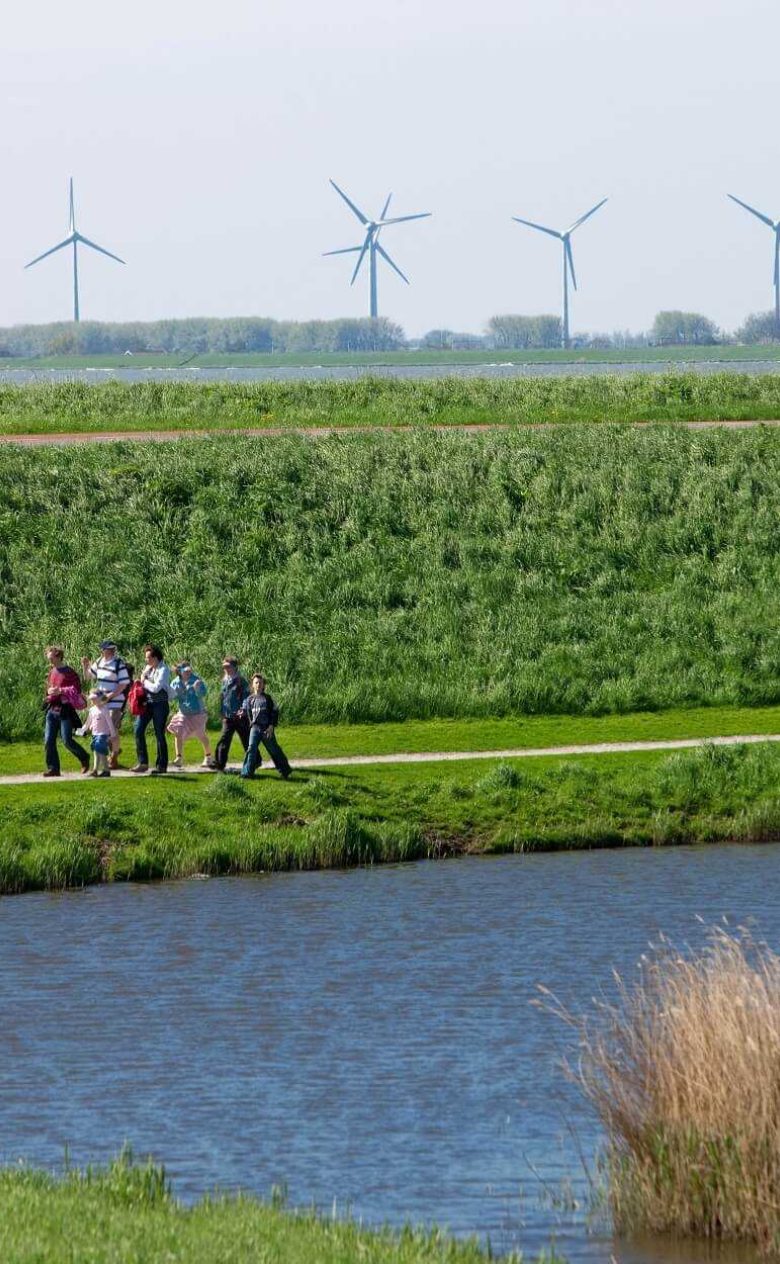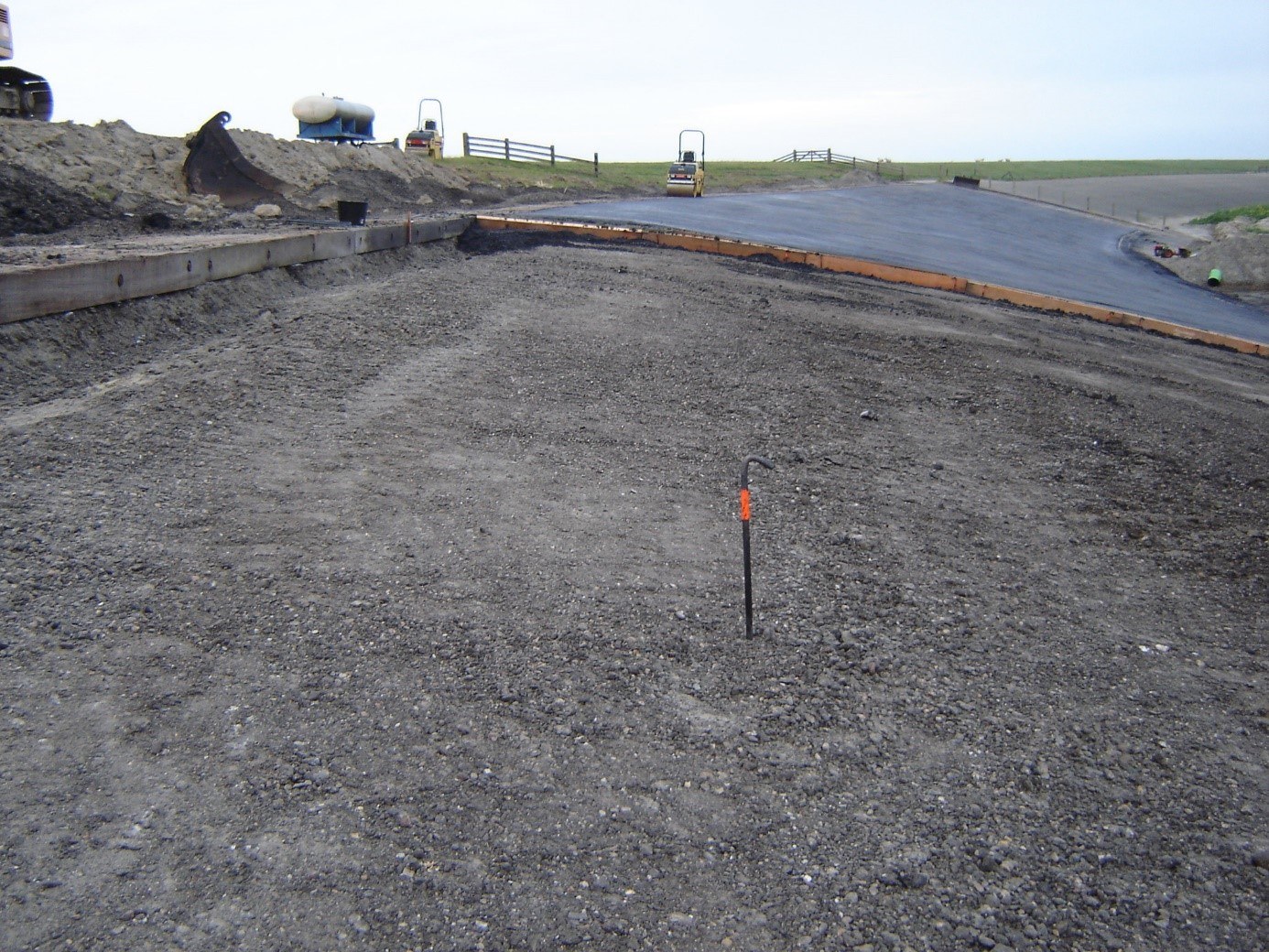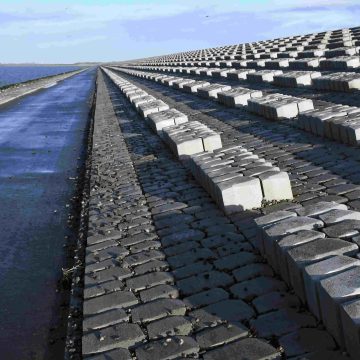Flood defences and flood risk management
Numerous organisations work to protect the Netherlands from flooding. They include water authorities, Rijkswaterstaat, engineering firms, contractors and knowledge institutes. Deltares is part of what is called ‘the Golden Triangle’ (government, business and knowledge). We develop knowledge that governments can use in guidelines and technical regulations: knowledge with added value that can be used by business in practice.

Research programmes
In the area of flood defences and flood risk management, research programmes are coordinated with parties such as the Flood Protection Programme, Rijkswaterstaat as the operational body for the Directorate-General for Water and Soil (DGWB), and the Dike Design Advisory Team (ADO).
In the world of flood defences and dike upgrades, three trends have become increasingly apparent in recent years.
- First of all, there is a pressure on space. Dikes and dike upgrades are increasingly an integral challenge involving multiple dimensions. Dikes serve several functions in addition to safety. The creation of high-quality space, sustainability and future resilience, but also maintenance, time and funding, continue to play a role.
- Partly because of the pressure on space, a second trend is pressure on support for the measures needed. In the future, given the potentially major changes, the present national methodologies and approaches will have to be viewed in a new light. Innovative approaches that combine interests are an important challenge.
- The third trend is the rise in tension between climate adaptation, the need for a large-scale upgrade programme to safeguard flood risk management in the future as well, and the efficient use of resources. It is a fact that objectives in terms of time and budget require the use of more innovative techniques, the deployment of new knowledge and new ways of thinking to make the most effective use of limited resources. The challenge here is to work on the basis of content and knowledge to justify why flood risk management has to be safeguarded.
Gradually, the focus is shifting from the challenge of ‘having the system in order by 2050’ to more abstract goals such as making the system of flood defences and rivers flexible and resilient, and linking up with spatial developments and quality, ultimately with the goal of an integrated and adaptive system. As a knowledge institute, Deltares is at the heart of this complex of interests and trends in society and it responds with its knowledge development.
Research climate-neutral and circular hydraulic asphalt concrete

Wetterskip Fryslân is conducting innovative research into climate-neutral and circular options for hydraulic asphalt concrete together with Rijkswaterstaat and Stowa.
Deltares carries out an important part of this research, especially on the aspects related to life span and the Assessment and Design Instrumentarium (BOI). It is also involved in updating manuals, which include life expectancy and the use of foundation layers.
In total, around 400 kilometres of flood defences in the Netherlands are lined with hydraulic asphalt concrete. A large part of these will have to be replaced in the foreseeable future. Applying climate-neutral and circular hydraulic asphalt contributes to achieving the climate and sustainability goals of both the HWBP, Wetterskip Fryslân and the other organisations involved.
For flood defences, we have been using high-temperature hydraulic asphalt concrete (WAB) to date. However, high-temperature production of these traditional asphalt mixtures no longer fits the sustainability objectives. The industry has therefore indicated its intention to stop producing high-temperature asphalt mixtures from 2025. This will reduce CO2 emissions and emissions of harmful substances such as benzene. In hydraulic engineering - as in road construction - we will also have to switch to lower-temperature asphalt mixtures.
The study "Climate-neutral and Circular Hydraulic Asphalt Concrete" (KCW) therefore aims to enable the application of sustainable hydraulic asphalt concrete in dyke reinforcement projects and give managers sufficient confidence in its application. The research aims to solve the knowledge gaps regarding the strength properties and service life of new, sustainable hydraulic asphalt concrete mixtures.
For more information, please contact Bernadette Wichman.





